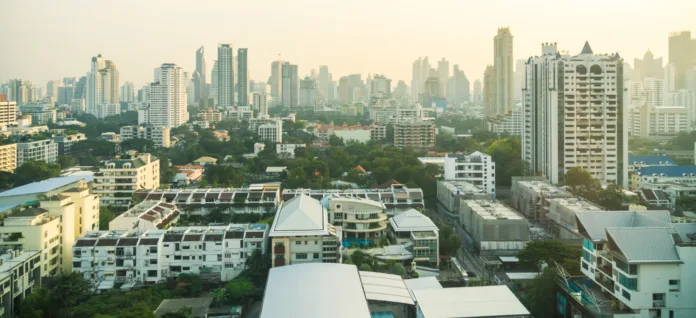Expat demand drives housing growth in Riyadh, with rising rental yields and homeownership targets fueled by visa reforms
Saudi Arabia’s residential real estate market is experiencing strong growth, driven by expat demand, population growth, and regulatory reforms. A new report by S&P Global predicts sustained housing demand in key cities like Riyadh and Jeddah, with the sector expected to expand at an average annual rate of 3.3% from 2024 to 2027.
The report highlights that Riyadh and Jeddah are experiencing soaring rental yields, with the capital city seeing a remarkable 9% increase in rental returns year-on-year during the first half of 2024. In Jeddah, rental yields grew by 4% over the same period. The continued surge in rental demand, fuelled by a growing expatriate workforce, has positioned the residential real estate market as a critical contributor to Saudi Arabia’s economy, accounting for about 7% of the nation’s gross domestic product.
Saudi Arabia’s ambitious Vision 2030 targets a homeownership rate of 70% by the end of the decade. The Ministry of Municipal and Rural Affairs reported that by the close of 2023, the homeownership rate had reached 63.7%. The push for increased residential units and mortgage availability is expected to drive this figure higher in the coming years.
Embed from Getty ImagesImpact of Policy Reforms and Foreign Investment
The Kingdom’s recent visa policy reforms and regulatory adjustments are set to attract more foreign investment into the real estate sector. Notably, the introduction of five new residency options under the Premium Residency programme, launched in January 2024, aims to appeal to expatriate investors, thereby contributing to Saudi Arabia’s population growth. The S&P report suggests that these changes could further stimulate demand for high-quality residential properties, particularly in Riyadh and Jeddah.
“The Saudi government remains firmly committed to its Vision 2030 objectives,” the report states, “and these reforms are poised to catalyse further growth, with domestic factors like homeownership targets being central to the real estate market’s expansion.”
However, despite the positive outlook, developers face challenges such as rising construction costs and intense competition for funding, especially with several major Vision 2030 projects competing for resources. Still, the market continues to expand: Riyadh added 16,200 new residential units in the first half of 2024, bringing its total to 1.5 million units, while Jeddah saw the addition of 11,300 units, pushing its total to 891,000.
Rising Demand Amid Limited Supply
The real estate market’s growth has not fully kept pace with demand, particularly in urban hubs like Riyadh and Jeddah. The total number of residential units in these cities is expected to increase by another 16,000 by year-end. However, with ongoing domestic migration to urban centres, the shortage of available housing persists, contributing to increased rental prices.
In September 2024, the General Authority for Statistics recorded an 11.2% year-on-year increase in housing rents, reflecting the strong expat demand for housing in Riyadh. As international professionals continue to relocate to Saudi Arabia for work opportunities, many tenants face challenges securing premium apartment units, often ending up on waitlists or settling for available options.
Real Estate Transactions and Digital Transformation
Saudi Arabia’s real estate transactions in the first half of 2024 reached SR127.3 billion ($33.89 billion), with residential properties making up the bulk of this figure. A separate report from Sakan, a leading real estate platform, indicates that residential properties are the fastest-growing segment by transaction value. Sakan’s data also shows a 1.6% rise in average property prices during the third quarter of 2024, reflecting strong market momentum.
To meet Vision 2030’s ambitious goals, the country needs to build over 1.2 million new housing units. This surge in demand is particularly evident in desirable neighbourhoods, where the scarcity of high-quality residential units is driving up prices. According to S&P’s report, premium apartment spaces in Riyadh and Jeddah are seeing the most significant price hikes, with location and property quality being key determinants.
The role of technology in streamlining property transactions cannot be overstated. Platforms like Sakan are revolutionising the market by connecting international buyers with Saudi properties, simplifying the buying process, and enhancing transparency. The integration of digital solutions is expected to further facilitate growth in the sector, offering potential homeowners and investors more informed decision-making capabilities.
